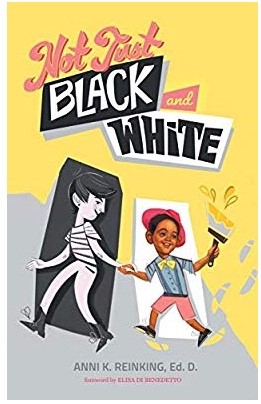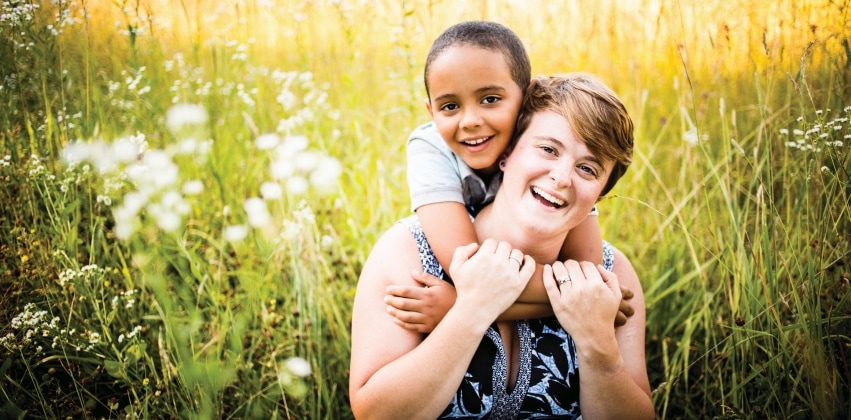In our society and wider world, race has always been a point of discussion. It creeps into implicit biases, which impact mindsets and actions. Race is embedded in institutions and structures that form the foundations of our schools, court systems and communities. However, conversations about race also make people uncomfortable, which often leads to avoidance. That avoidance is a privilege—a privilege not everyone has.
When my black son goes to school, walks into a store or plays at a museum, he experiences something I never did as a child. People notice his skin color before anything else about him. Is my skin color the first thing people see? I am sure not, but they do notice when I speak to him, parent him or interact with him. I cannot count how many times I see other people—usually white people—change their tone of voice, body language and overall aura when they realize I am his mother: a white woman to a socially perceived black son.
Reflection and Discovery
As a professor, researcher, author and mother, I try my hardest to stay educated. Mostly, I want to learn and understand the experiences my son will have because it’s new to me, too.
 Over the past 10 years since I became a mother, I have had many experiences and thoughts about where I fit in because a voice like mine is rarely part of the “race conversation.” While I understand I may not have deep insight to add to the overall discussion, I do reflect on where I belong as a white mother raising a black son. Many of these thoughts and experiences are detailed in my recently published book, Not Just Black and White.
Over the past 10 years since I became a mother, I have had many experiences and thoughts about where I fit in because a voice like mine is rarely part of the “race conversation.” While I understand I may not have deep insight to add to the overall discussion, I do reflect on where I belong as a white mother raising a black son. Many of these thoughts and experiences are detailed in my recently published book, Not Just Black and White.
Prior to and during the process of writing my book, I asked myself many questions: How do I empathize with my black son? How do I teach him how society views him? How do I have “the talk” with him? (“The talk” is a discussion left almost exclusively to black parents and family members about how police interact with black men.) What questions am I not asking because I don’t know what to ask? What am I missing? How much does my voice matter? How many people will listen?
To the world, I am just another white woman who is trying to stand up for black people. But to me (and many others who are living in multiracial families), I am a white woman who is fighting for her black son.
My book is a memoir of reflection and discovery, of vulnerability and open dialogue. As one reviewer wrote, it “blatantly exposes her weaknesses, failings and ignorance. Yet, she had made no excuse for her ignorance.” It transitions from topic to topic, while providing readers an understanding of my life and engaging them in reflection on the racism that underlies many structures and institutions. I talk about what “the talk” means in my household, which differs from my upbringing since I am raising a black boy. I discuss my mistakes in caring for my son’s hair and skin, and my journey to find him role models who can answer questions I may not have the cultural knowledge to address.
Dissipating Fear
The conversation of race often causes fear for many people. Fear guides our actions. Fear guides our words. Fear guides our thoughts. I am fearful of how my son will be viewed when he is no longer a cute boy but a young black man, whose actions could be misperceived with deadly consequences. That is a fear parents of white children do not have.
But as families become more diverse through marriage, adoption and other situational experiences, I’m hopeful that a wider sense of “us” is emerging. I believe that when honest reflections and conversations take place, fear will dissipate, mindsets and actions will change, and a society based in equity will be the result. My wider goal is to help people move past comfort into a place of discussion and reflection that ultimately leads to discomfort and vulnerability. That is the place of growth. PM
Anni Krummel Reinking, Ed.D. lives in Peoria and is an assistant professor at Southern Illinois University Edwardsville. Not Just Black and White: A White Mother’s Story of Raising a Black Son in Multiracial America can be purchased on Amazon or Barnes and Noble. For more information, visit akreinking.weebly.com.




